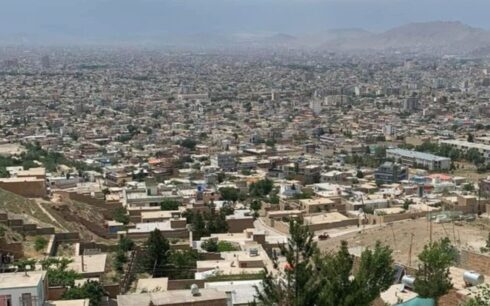Rana Sanaullah, Special Assistant to the Pakistani Prime Minister on Political Affairs, has warned that Pakistan may once again carry out cross-border operations in Afghanistan as part of its counterterrorism efforts if its security is threatened.
Speaking to Pakistan’s Sama TV, Sanaullah referenced recent Pakistani airstrikes in Afghanistan’s Barmal district of Paktika Province, asserting that such actions are justified under international law. “Pakistan has the legal right to continue these operations if its soil is attacked from Afghanistan,” he said.
Separately, Ahsan Iqbal, Pakistan’s Minister for Planning, Development, and Reform, expressed concerns over what he described as a new wave of terrorism affecting the country. Iqbal emphasized that Islamabad has repeatedly urged the Taliban to prevent Afghan territory from being used for attacks against Pakistan.
“Pakistan has made significant sacrifices for the Afghan people and continues to bear this burden,” Iqbal said, underscoring the urgency of the issue.
The statements from Pakistani officials follow a blast in Balochistan Province on Saturday that killed six people and injured dozens, further fueling tensions between the two countries.
Taliban officials, including Deputy Foreign Minister Mohammad Abbas Stanikzai, have condemned Pakistan’s recent airstrikes, calling them violations of Afghan sovereignty.
Islamabad has accused the Tehrik-i-Taliban Pakistan (TTP) of using Afghanistan as a base to orchestrate attacks on Pakistani security forces. According to a United Nations Security Council report, an estimated 6,000 TTP fighters operate in Afghanistan under Taliban rule.
The Taliban, however, deny these allegations, dismissing them as Pakistan’s internal issue. They argue that Pakistan has long supported Islamist movements and now faces the consequences within its own borders.
“How can Pakistan deny the same ideology within its own borders after nurturing it in its schools for years?” a Taliban official remarked.
Former U.S. envoy to Afghanistan Zalmay Khalilzad weighed in on the escalating tensions, noting on X that Pakistan is grappling with “triple crises”: political instability, including the imprisonment of former Prime Minister Imran Khan; economic challenges; and intensified security threats.
“Pakistan needs a reset. It must start with freedom for Imran Khan,” Khalilzad wrote.
Nasir Andisha, Afghanistan’s permanent representative to the United Nations in Geneva, added that the TTP, the Taliban, and the Islamic State Khorasan Province (ISKP) are “thorns of the same desert,” further highlighting the interconnected nature of regional militant networks.





